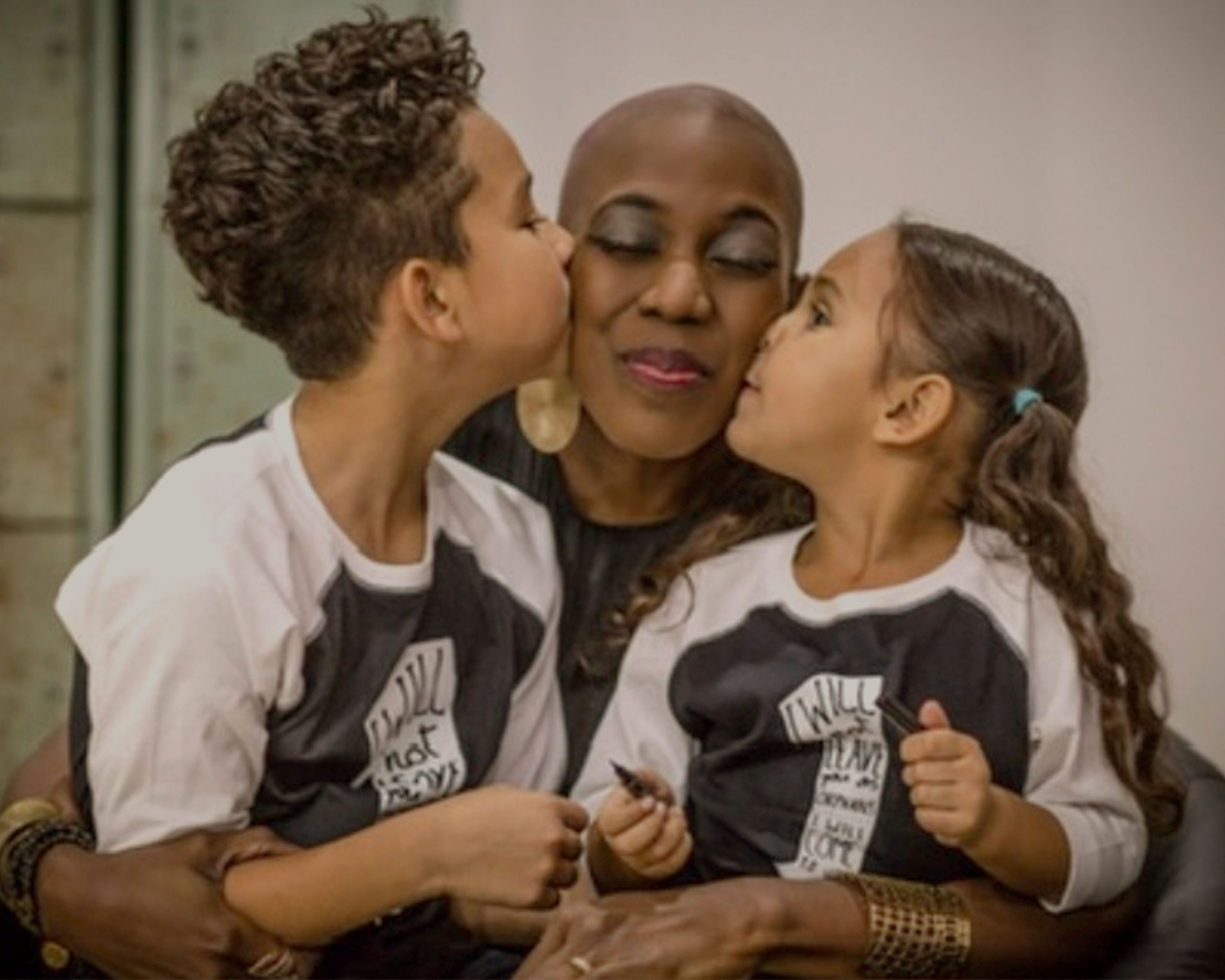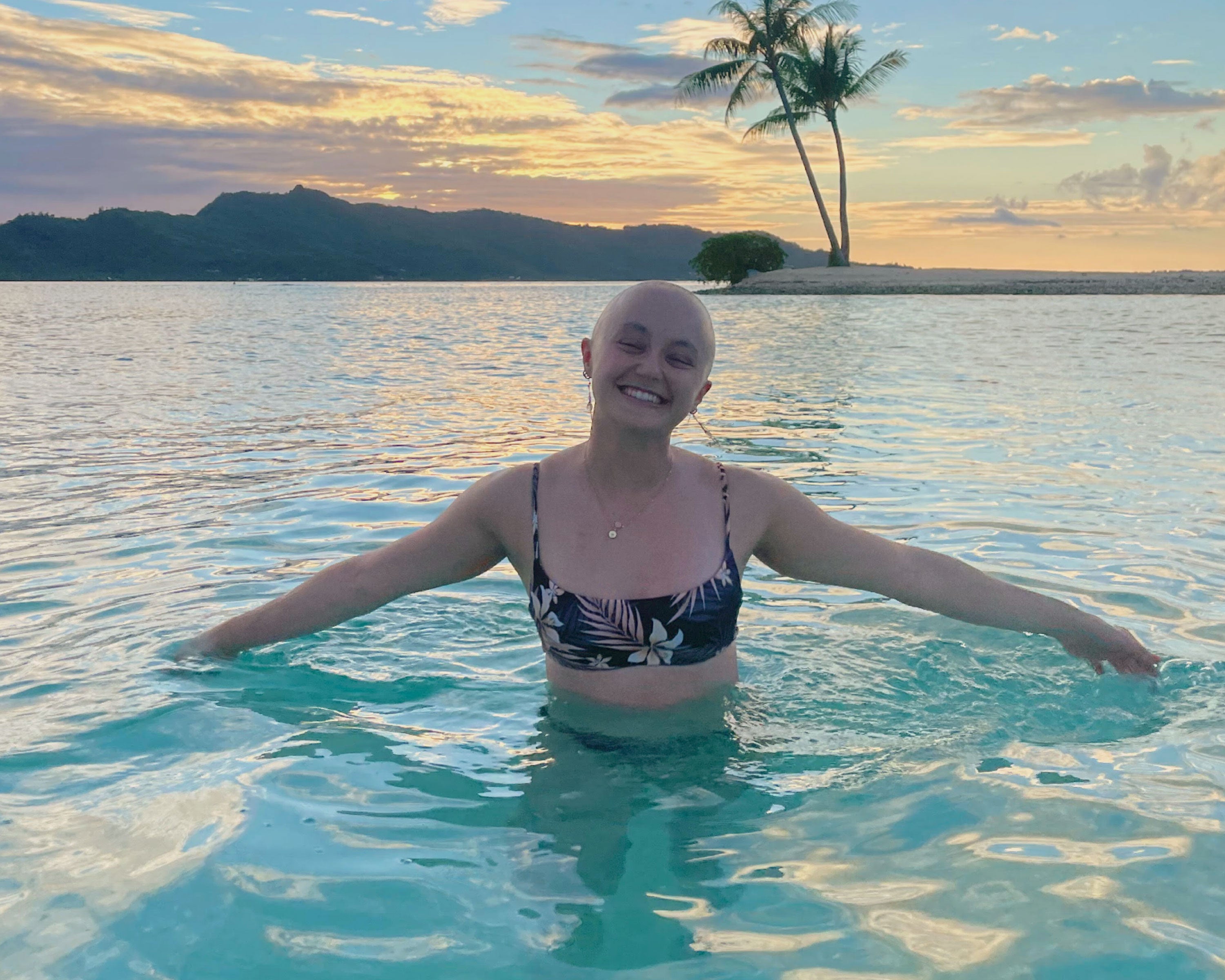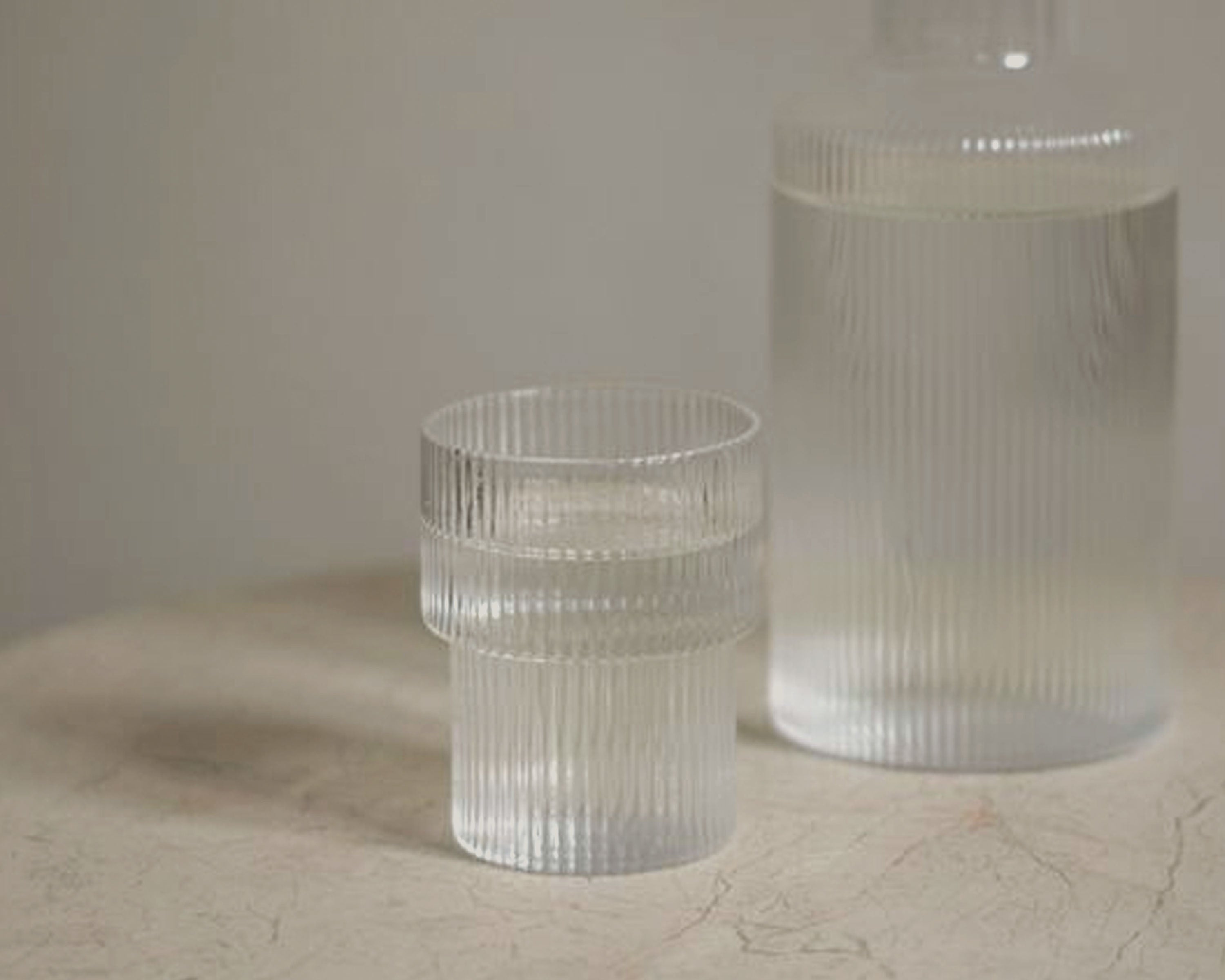Real Talk
“As a Black Breast Cancer Patient, I Couldn’t Get Doctors to Take My Pain Seriously”
By Ashadee Miller
Share
Eight years prior to being diagnosed, I had run a race — 60 miles over three days — to raise thousands of dollars for breast cancer. At the time, I didn’t know even one person that had the disease. To be honest, that experience completely tainted my view of what it meant to have breast cancer. The rhetoric was all about “saving the TaTas” and showing off our pink ribbons and pink tutus. I look back and feel sad about it — that I didn't bother to connect with the people we were raising money for, or get curious about their stories. Somehow, I held a belief that breast cancer was more or less the same experience for everyone, and I had this idea that it was the “easier, prettier cancer.” The facade of all of that pinkwashing, as we call it now, really blinded me from the truth.
But the blinders started to come off a few years ago, when — as many people’s stories begin — I felt a tiny bump while shaving my underarms. Even as I underwent the ultrasound guided biopsy, the doctor told me it was probably just a benign cyst, and I clung to this assumption.
Two days later, I had a call from him, and I nonchalantly put the phone on the bathroom counter and listened on speaker as I was getting ready that morning. This is probably just a reminder call for my appointment in a couple of days to discuss the results, I told myself. But then he said, “I’m calling to let you know it’s going to be a longer road than you thought.” What? Was I hearing this right? I took him off speaker just as he was telling me the biopsy results were positive for cancer. “Bring a notebook and a pen to your appointment, because I’m sure you’ll have a lot of questions.”
I immediately felt irritated. How was I possibly supposed to know what to ask? The only two questions that came to mind were, “What stage am I?”... And, “Am I going to die?”
I hung up the phone and without even realizing it, I began to scream. I can only describe the screaming as an involuntary response — immediately after learning the news, I left my body and disconnected from it in order to survive. (Four years later, I’m still asking myself if I’ve fully returned to it.) My eight-year-old son ran into the bathroom to find out what was wrong. I hated lying to him but said I had stubbed my toe, and kissed him goodbye as he left to get on the bus for school.
I told my husband to put on a movie for our three-year-old daughter. “A movie? It’s eight in the morning,” he said, looking confused. “Yeah, put on the movie,” I replied. I took him into our daughter's room and I slowly slid down the wall until I was sitting on the floor in the dark. The words came out, “I have cancer,” and all I could think was, This is so stupid. It truly seemed like the best word — it was so stupid that three weeks after my 34th birthday, this is what the universe had dealt me.
After getting a second opinion, I was diagnosed with stage 3, grade 3, ER- and PR-positive, HER2-negative breast cancer. Treatment had to begin right away, and it wasn’t easy or pretty. I started with eight rounds of chemotherapy (including four rounds on a drug that is very appropriately nicknamed the “Red Devil” for how awful it makes you feel). On top of that, I had to undergo a bilateral mastectomy and lots of radiation. After 35 sessions of radiation, my body was literally being burned from the inside out. I couldn’t take a shower without bawling because my third-degree-burned skin was falling off the second it made contact with water.
Whatever pain I experienced, screaming or complaining wasn’t my M.O. All my life, I had learned how to internalize pain instead of vocalizing it. The one time I couldn’t sustain my typical coping mechanism for pain was after my chemo infusions. I was given a drug called Neulasta (in patch form), which is supposed to trigger your bone marrow to turn up the white blood cell counts so they don’t drop too low. But mine had gone into serious overdrive, and the result was a pain that was indescribable. Sometimes I’d pass out because it was so intolerable.
Reluctantly, I made my way to the local ER. My oncologist was two-hours away, but the nurses at the ER called to let her know what was going on and keep her informed about the combinations of pain medications they were trying. The reaction was astounding to me. My oncologist asked the nurses, “Why is she in that much pain? What is she doing?” I couldn’t believe what I was hearing. I hated being away from my babies as much as I hated the feeling of being on pain meds — and now my intentions were being questioned by the very person I’d chosen to help save my life.
As a white man, my husband struggled to understand why his Black wife continually had her pain dismissed over the years. Yes, this is something he had witnessed before. A few years earlier, after a procedure to remove an ovarian cyst, some complications during surgery resulted in persistent, excruciating pain. I finally surrendered to calling my care team to let them know I felt like something wasn’t right. They assured me that things were fine, that pain was normal. “Okay, I’ll just be quiet. They must know better than I do,” I told myself. I later came to learn (after a lot of persistence) that the doctor had accidentally stitched a nerve ending to my C-section incision during my surgery. My pain was anything but normal.
What made the situation with my oncologist so infuriating to me and to my husband is that we both knew what it had taken for me to ask for help. I’d had 6 surgeries before this point, and as my husband likes to remind me, I typically didn’t even request a Tylenol during my recovery. Despite my high pain tolerance, my husband hated seeing me suffer when I didn’t have to. “I know you tend to shut down when you're in pain, but maybe you need to cry more or do something, so they believe you,” he lovingly suggested. But that was so much unnecessary energy that I just didn’t have it in me to exert. Plus, my fear of being perceived as a person that needed or wanted pain medicine was bigger than my desire to feel better.
It’s a really complicated thing, especially as a Black woman who grew up in predominantly white spaces. In the past, when an injury or pain brought me to the ER, some nurses or doctors would say, “Let’s just give you pain meds.” But I resisted. I said, “No, I just want you to find out what’s wrong with me.” I didn’t want any record in my medical chart that I was someone who took narcotics. I feared that even my future doctors would look at the chart and let their own unchecked biases influence their view of me — or worse — the care they gave me. As silly as it might sound, I’d endure debilitating pain because I wanted to prove I wasn’t a drug addict.
The first time I went to see my oncologist after the Neulasta incident, I had my mom beside me, and she wasn’t mincing words. “Why wouldn’t you believe she was in pain?,” my mother asked. My oncologist seemed confused, claiming she had never heard of others having this level of bone pain from Neulasta. (Even a simple Google search will reveal that’s a blatant lie — I’ve since discovered that my experience isn’t so uncommon.) I looked her in the eyes and said, “I need you to know that the things you think, say and do have serious effects on my life.” I had been raised to confront people face to face, to give them a chance to rectify their wrongs and do better. But needless to say, this visit was the end of our relationship.
Today my doctors describe my situation as 'no evidence of disease' (NED). This means that cancer is no longer detectable in my body, and I prefer this term to “remission”. Cancer will always be a part of my life, although the specific providers may change as my needs evolve. For instance, I recently underwent a hysterectomy and had to add a gynecological oncologist to my care team. The first time I met with her she said, “You know, for women of color like yourself, this is what typically happens.” I felt my eyes well up with tears because I was so relieved that she didn’t lump me in with all her patients — she saw who I was and wanted to treat me specifically.
As people of color, our experiences aren’t just like those of white people. If our doctor hands us a compression sleeve to reduce symptoms of lymphedema after breast surgery, the ones that come in the typical nude color look horrible – that’s not our skin tone! When we go through radiation and doctors tell us we may experience redness, we deserve to know that no, actually, our skin won’t get red — it will probably get black and charred. True inclusivity is seeing color. To not see it makes Black people invisible.
These aren’t the stories typically told during Breast Cancer Awareness Month. Maybe it’s because they don’t fit into the way breast cancer has been marketed. But I adamantly believe that they need to be told. I owe it to my daughter, to all the other daughters and women of color out there that will be done a disservice if we don’t bring these stories out of the shadows. We may like to believe that racial biases go out the window in settings where the goal should be very simple: to help sick people get well. But medical providers have biases, too. I believe that change is possible with the right education and training — and a willingness to grow and learn. But as patients of color, we can’t afford to wait for change. We have to advocate for ourselves. And on the days when we can’t find our voices, we need allies to advocate for us.
This article is for informational purposes only and is not a substitute for medical advice, diagnosis, or treatment. Please keep in mind every individual’s situation is different, and you should not take any actions concerning your body and well-being before consulting with a healthcare professional.
Let your loved ones know what you actually need
Easily add items from the Alula shop to your registry, and share it with friends and family who ask.



